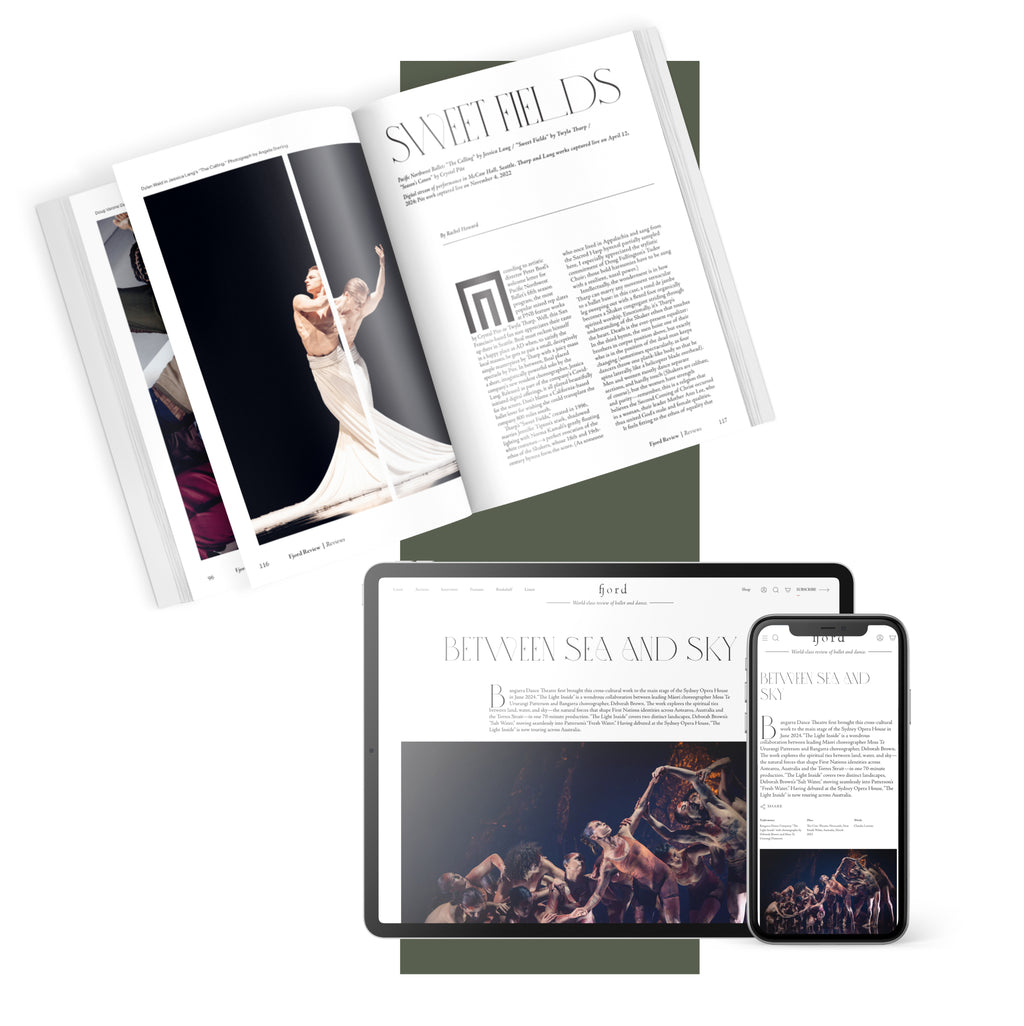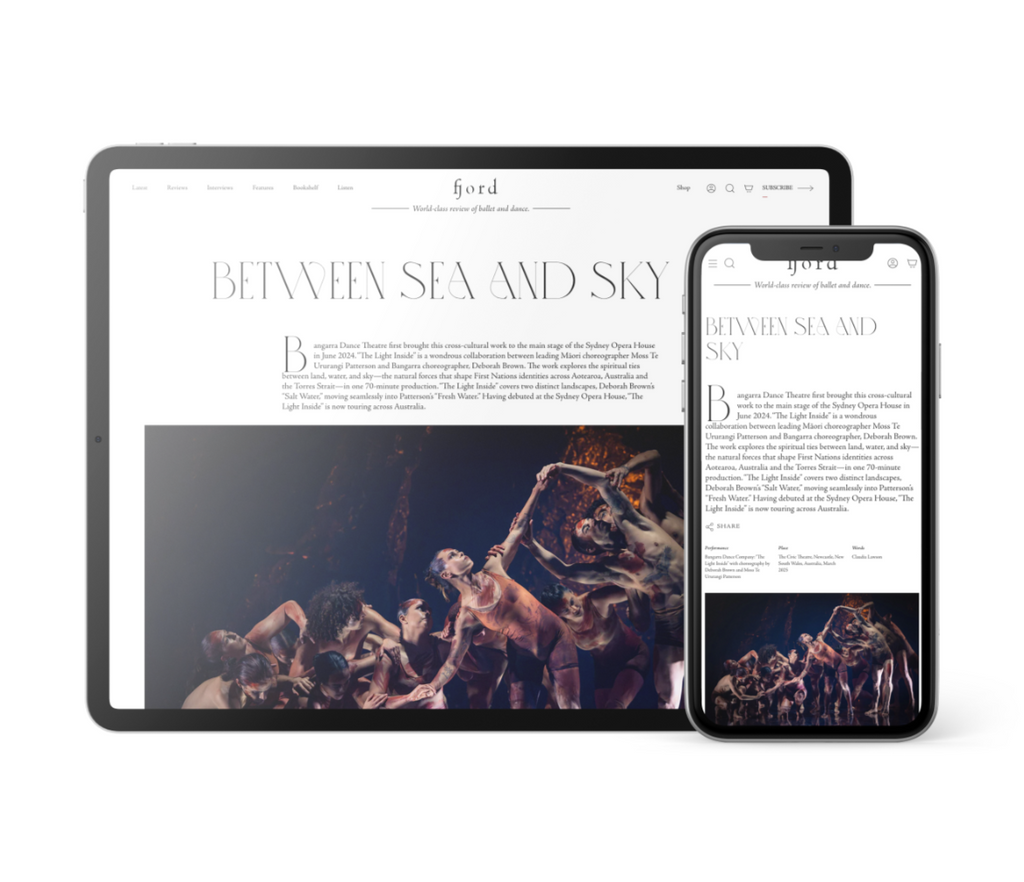Dancing and Screaming Against the Sky
“Profanations,” created by choreographer Faustin Linyekula and music artist Franck Moka, is not a “just” dance piece: it’s a live concert, a cinematic séance.
Continua a leggere
World-class review of ballet and dance.
The Royal Ballet’s new restaging of “Everywhere We Go”—the Sufjan Stevens-scored ballet that secured Justin Peck his appointment as resident choreographer at New York City Ballet in 2014—challenges the company’s dancers to adopt a specifically American brand of pizzazz. It might take a few more outings for them to conquer the ballet’s tricksy choreography, especially the swerving, breakneck syncopations, but precision doesn’t feel as important as charisma here, and they bring lashings of it, especially Sae Maeda, Daichi Ikarashi and Reece Clarke, each of whom matches the whizz-bang flavour of the ballet with fireworks of their own.
Performance
Place
Words



“Uncommonly intelligent, substantial coverage.”
Your weekly source for world-class dance reviews, interviews, articles, and more.
Already a paid subscriber? Login

“Profanations,” created by choreographer Faustin Linyekula and music artist Franck Moka, is not a “just” dance piece: it’s a live concert, a cinematic séance.
Continua a leggereWhen Alban Lendorf (b. 1989) was four, he became attentive to the piano. As he explained in an interview with Pointe magazine, when his lessons advanced to the learning of a Chopin waltz, his piano teacher suggested he take dance classes to help open up the music. From the school of The Royal Danish Ballet to the company, his career rocketed forward; by the time he turned twenty-one, he was a principal dancer, still playing the piano and testing a latent gift for acting.
Continua a leggereMarie Antoinette is not an entirely sympathetic character. Her penchant for luxury and extravagance—and the degree to which she was out of touch with the lives of the majority— made her a symbol of the wealth disparity that prompted the French Revolution.
Continua a leggereAscending the Guggenheim Museum's rings through Rashid Johnson's retrospective, “A Poem for Deep Thinkers,” is a dance in of itself.
Continua a leggere
comments